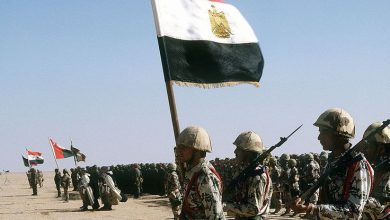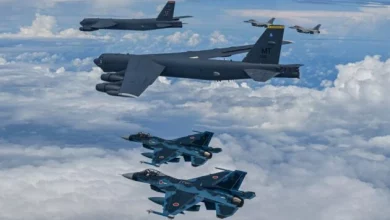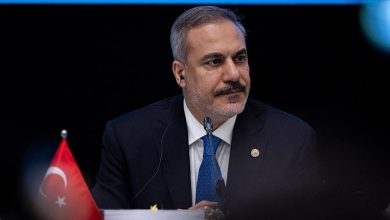North Korea-Russia Alliance: What Happens When the Ukraine War Ends?

North Korea’s deployment of troops to Russia’s Kursk region to support its Ukraine war efforts has raised alarms in Washington and Seoul. The partnership between Kim Jong-un and Vladimir Putin appears rooted not in ideology but in mutual strategic benefit.
North Korea’s deployment of troops to Russia’s Kursk region to support its Ukraine war efforts has raised alarms in Washington and Seoul. The partnership between Kim Jong-un and Vladimir Putin appears rooted not in ideology but in mutual strategic benefit.
-North Korea, concerned about a strengthening trilateral U.S.-South Korea-Japan alliance, seeks advanced military technology and political backing from Russia. Meanwhile, Moscow is eager for any support in Ukraine.
-However, while the U.S. sees this cooperation as an emerging “axis,” the relationship may prove transient, driven by convenience rather than lasting alignment, especially if U.S. foreign policy or Ukraine’s conflict dynamics shift.
Russia’s Desperate Alliance with North Korea Raises Global Alarms
Reports of thousands of North Korean troops deploying to Russia’s Kursk region have caused an uproar in multiple capitals. As one might expect, Washington, D.C. is one of them. After meeting with South Korean Defense Minister Kim Yong-Hyun at the Pentagon on October 30, U.S. Defense Secretary Lloyd Austin expressed “deep concerns” about the North Korean deployment and made it clear that U.S. and South Korean officials were watching the development closely. A day later, Secretary of State Antony Blinken gave more detail, telling reporters that North Korean soldiers were being trained in artillery, drone warfare, and infantry operations, that 8,000 of them were already in Kursk, and that their involvement in combat operations could come in a matter of days.
The U.S. foreign policy establishment is in a tizzy, understandably so. It’s not every day an Asian power sends thousands of its personnel to help a partner in a war thousands of miles away, particularly when the outcome of that war doesn’t matter all that much to its interests.
The South Koreans have justifiable fears as well; President Yoon Suk-yeol has loudly denounced the growing North Korea-Russia relationship as illegal, contrary to U.N. Security Council Resolutions, and a terrible omen for the Korean Peninsula’s stability. Seoul was jittery even before North Korean leader Kim Jong-un and Russian President Vladimir Putin signed their comprehensive strategic agreement in June, which aims to enhance collaboration on everything from defense research to agricultural development.
Yet it would be wrong to jump to conclusions and assume that North Korea and Russia are engaged in the kind of deep-seated, long-lasting alliance the United States shares with South Korea and Japan. Kim and Putin are highly selfish, mercurial, at times cunning individuals who comprehend the geopolitical environment they operate. Strip away the demagogic, nuclear-laced tirades both men frequently unveil and what you have are two leaders who are quite predictable in their behavior. Both are trying to maximize the power of their respective states and see each other as force multipliers.
Although Pyongyang and Moscow share a long, complicated relationship, ties today are booming for the simple reason: it’s in the interest of both. Despite what you constantly hear from editorial writers in the Washington Post and the Atlantic, a common affinity for authoritarian politics isn’t what is driving these two powers together. The motivators, rather, have to do with high politics—that is, matters of national security.
North Korea and Russia, after all, have a similar conception of the United States as an aggressive, predatory but increasingly weakening hegemon desperately seeking to maintain its status as the world’s penultimate superpower. Relatedly, both see Washington as inherently expansionist, not in terms of annexing territory, leave that up to the Russians, but rather by linking Europe and Asia and encouraging its allies on both continents to work more seamlessly together as a way of containing any competitor who emerges. Russia doesn’t want to see South Korea and Japan involving itself in Europe; North Korea, in turn, doesn’t want NATO drifting into East Asia.
With similar worries, the stars for Kim and Putin have aligned.
The Big Question: For How Long?
Some U.S. experts are fond of throwing the word “axis” around to describe the current state of relations between North Korea and Russia. The implications of this weighty term are clear enough: the two revisionist powers are conspiring with one another to undermine, if not destroy, U.S. power and are cementing a partnership designed to stretch U.S. global resources and distract U.S. attention on multiple fronts. North Korean troops hopping onto ships, disembarking in Russian ports, and fanning out to train with Russian military instructors to support a Russian war in Ukraine has certainly elevated this chatter.
But a key fact should be remembered: the North Koreans aren’t supporting Russia’s war against Ukraine for free, out of the goodness of their hearts, or even because the Kim regime agrees philosophically with what Putin is attempting to do. He’s offering his military services to get something far more valuable in return: a declining but still great power in his corner as he continues to confront an ever-strengthened trilateral bloc between the U.S., South Korea, and Japan as well as the types of military technology: rocket boosters, guidance systems and perhaps even re-entry vehicles that would enhance Pyongyang’s deterrent.
Kim, in essence, is doing what his grandfather, Kim Il-sung, did with the Soviet Union so many decades ago: extracting as much from Moscow as he possibly can. Russia likely knows this but is going along with it anyway out of sheer desperation.
A shared animus toward U.S. foreign policy and the war in Ukraine are motivators for a stronger North Korea-Russia relationship. But will the relationship persist in its current state if the war in Ukraine ends and U.S. foreign policy changes? Analysts should think about this question before assuming they know the answer.





